[ad_1]
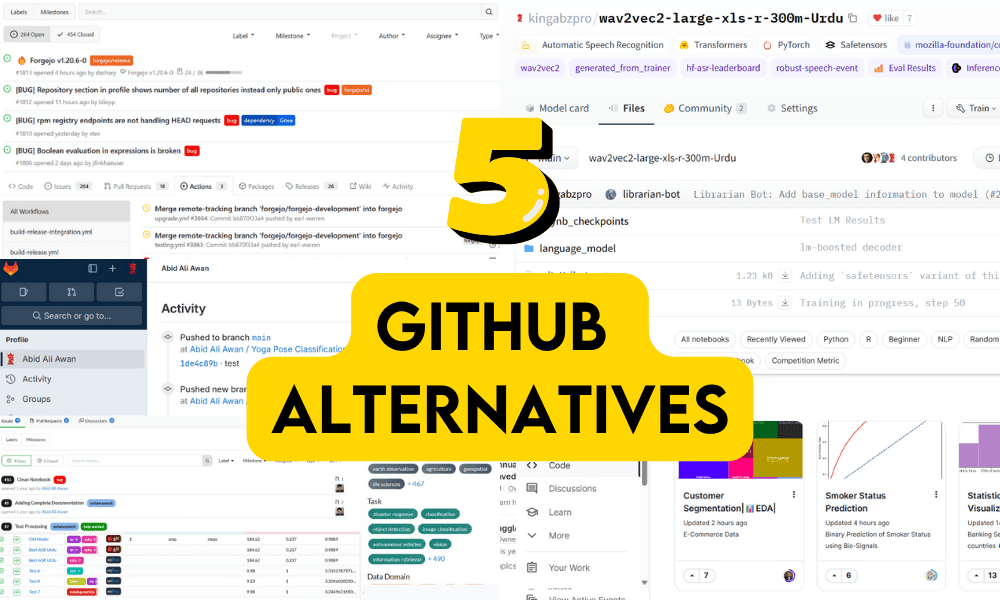
Picture by Writer
GitHub has lengthy been the go-to platform for builders, together with these within the information science group. It gives strong model management and collaboration options. Nonetheless, information scientists typically have distinctive necessities, reminiscent of dealing with massive datasets, complicated workflows, and particular collaboration wants that GitHub could not totally cater to. This has led to the rise of other platforms, every providing distinctive options and benefits.
On this weblog, we discover the highest 5 GitHub alternate options which might be notably fitted to information science tasks, offering various choices for collaboration, challenge administration, and information and mannequin dealing with.
Kaggle is famend within the information science group for its distinctive mixture of knowledge science competitions, datasets, and a collaborative setting.
The platform gives entry to an enormous repository of datasets and a chance for information scientists to check their abilities in real-world situations by way of competitions. Furthermore, I present entry to edit, run, and share code notebooks with outputs.
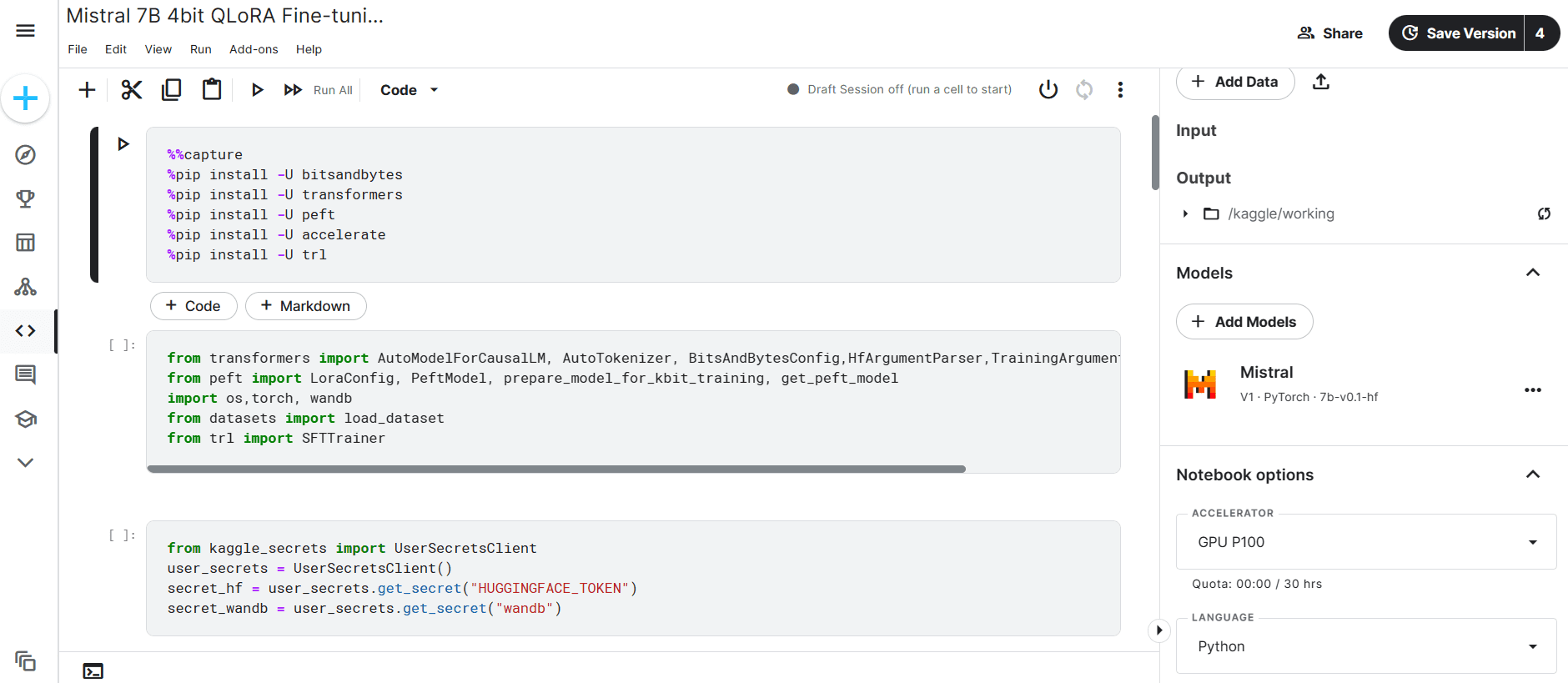
Picture from Kaggle
I’ve been utilizing Kaggle for 3 years now, and I completely like it. This platform permits me to shortly run deep studying tasks on free GPUs and TPUs. With its assist, I’ve been in a position to create a robust portfolio by sharing my analytical reviews and machine studying tasks. Moreover, I’ve participated in numerous information analytics and machine studying competitions, which has helped me enhance my abilities in these areas. Total, Kaggle has been a wonderful useful resource that has enabled me to develop each personally and professionally.
If you’re a newbie in information science, I extremely suggest beginning with Kaggle as a substitute of GitHub. Kaggle gives a variety of free options which might be important for any information science challenge. Moreover, you possibly can study from others and ask questions straight in a group of like-minded people who need to assist one another.
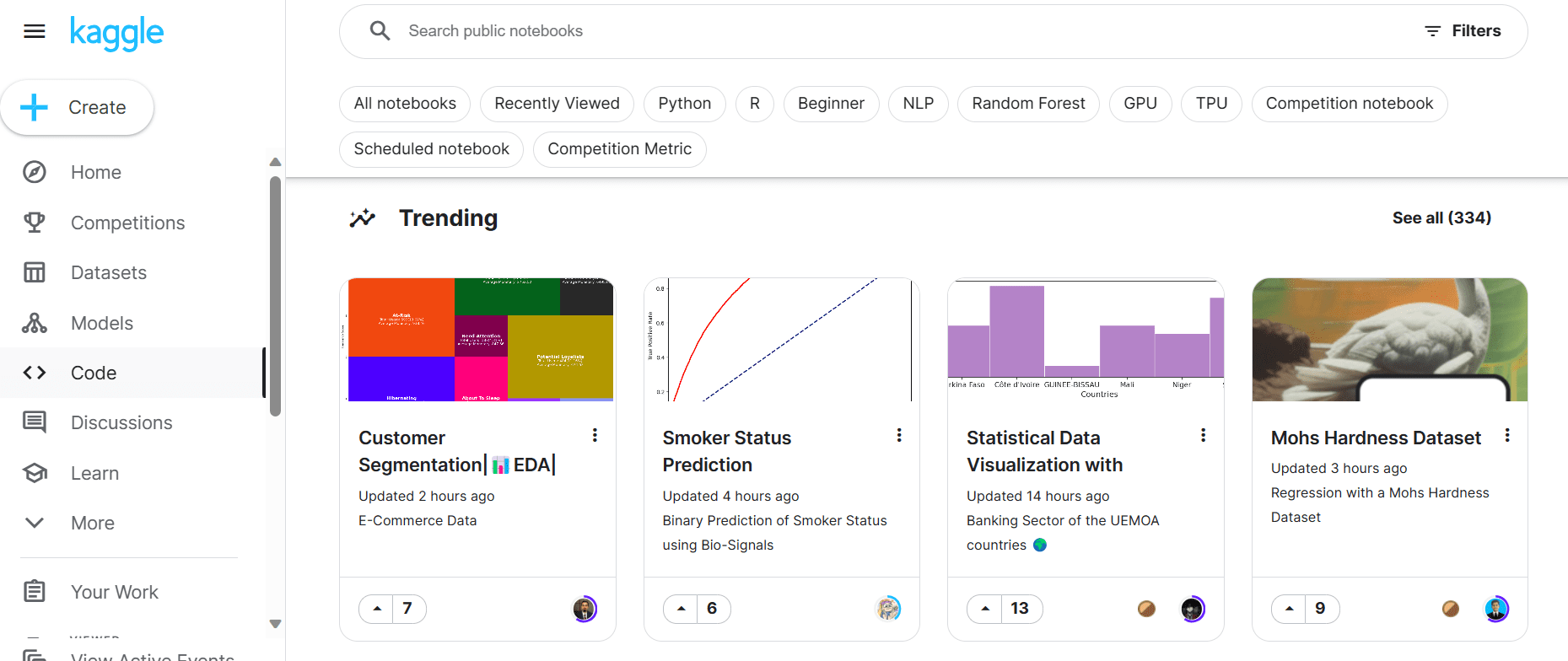
Picture from Kaggle
Hugging Face has quickly develop into a middle for the most recent developments in pure language processing (NLP) and machine studying. It units itself aside by providing an enormous assortment of pre-trained fashions, together with a collaborative ecosystem for coaching and sharing new fashions. Moreover, it has develop into easy to add your dataset and deploy your machine studying net app at no cost.
In Hugging Face, a mannequin repository is just like GitHub and accommodates numerous forms of info, together with recordsdata and fashions. You may connect a analysis paper, add efficiency metrics, construct a demo with the mannequin, or create an inference. Moreover, now you can remark and submit pull requests, identical to in GitHub.
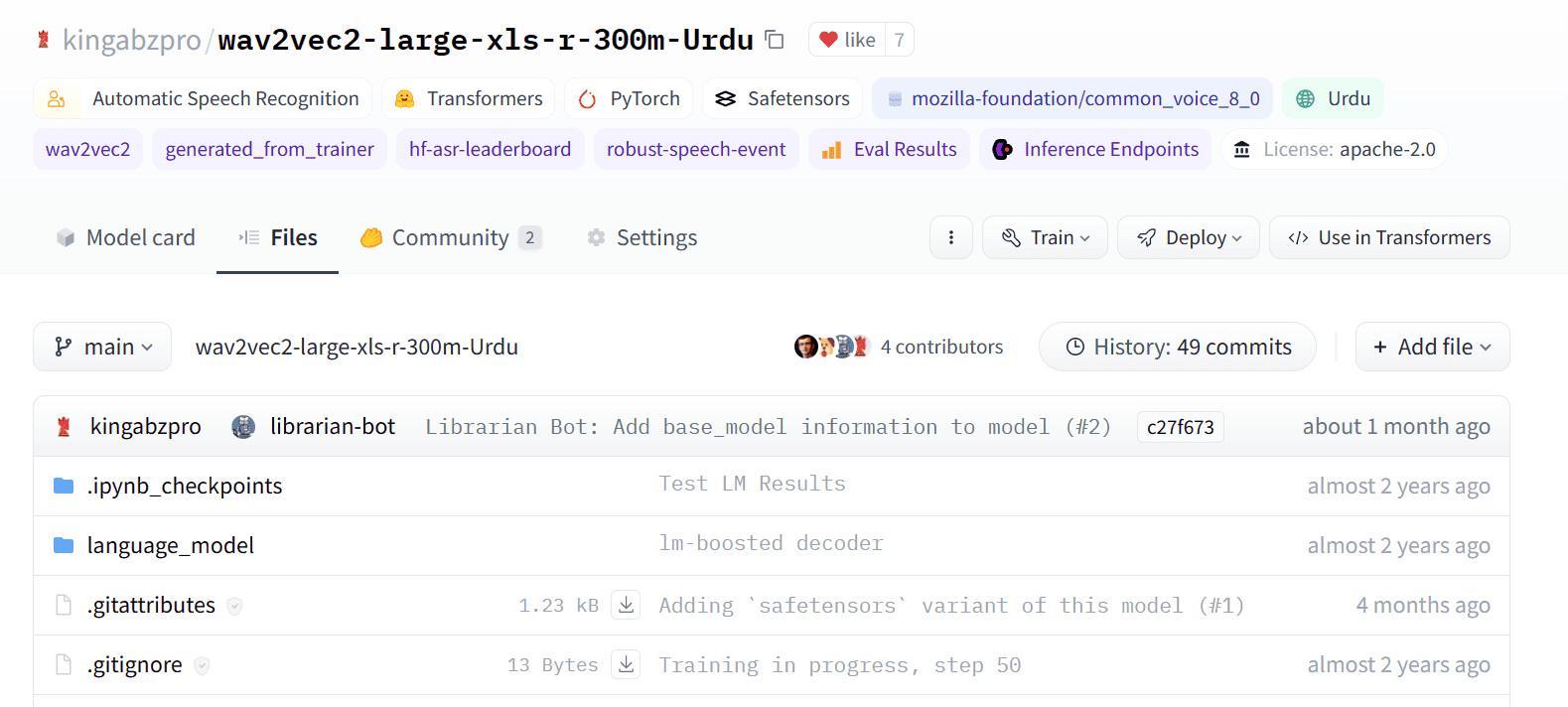
Picture from Hugging Face
I take advantage of Hugging Face incessantly to deploy fashions, add educated fashions, and construct a robust machine studying portfolio. I’ve applied deep reinforcement studying, multilingual speech recognition, and huge language fashions.
This platform is primarily designed for the group, and one in all its most essential options is that it gives most of its options at no cost. Nonetheless, you probably have a state-of-the-art mannequin, you possibly can even request paid options. This makes it the go-to platform for anybody who aspires to develop into an ML engineer or NLP engineer.
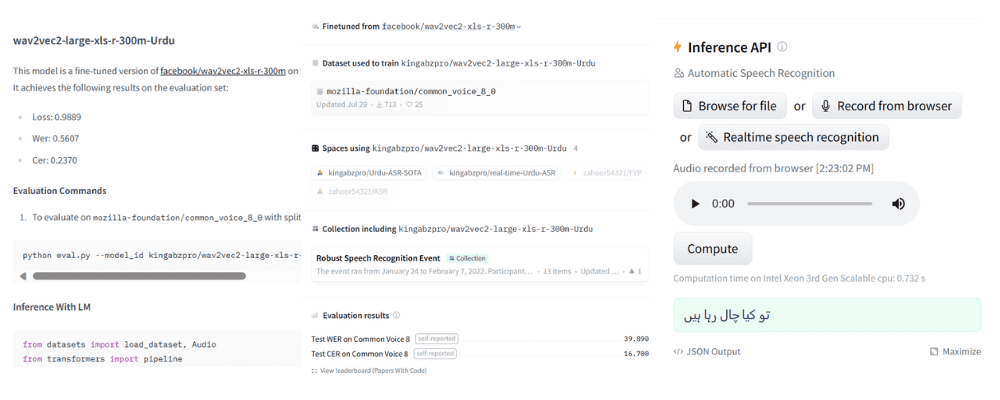
Picture from Hugging Face
DagsHub is a platform tailored for information scientists and machine studying engineers, specializing in the distinctive wants of managing and collaborating on information science tasks. It gives distinctive instruments for versioning not simply code but in addition datasets and ML fashions, addressing a typical problem within the discipline.
The platform integrates nicely with fashionable information science instruments, permitting for a easy transition from different environments. DagsHub’s standout function is its group facet, providing an area for information scientists to collaborate and share insights, making it a very engaging selection for these trying to interact with a group of friends.
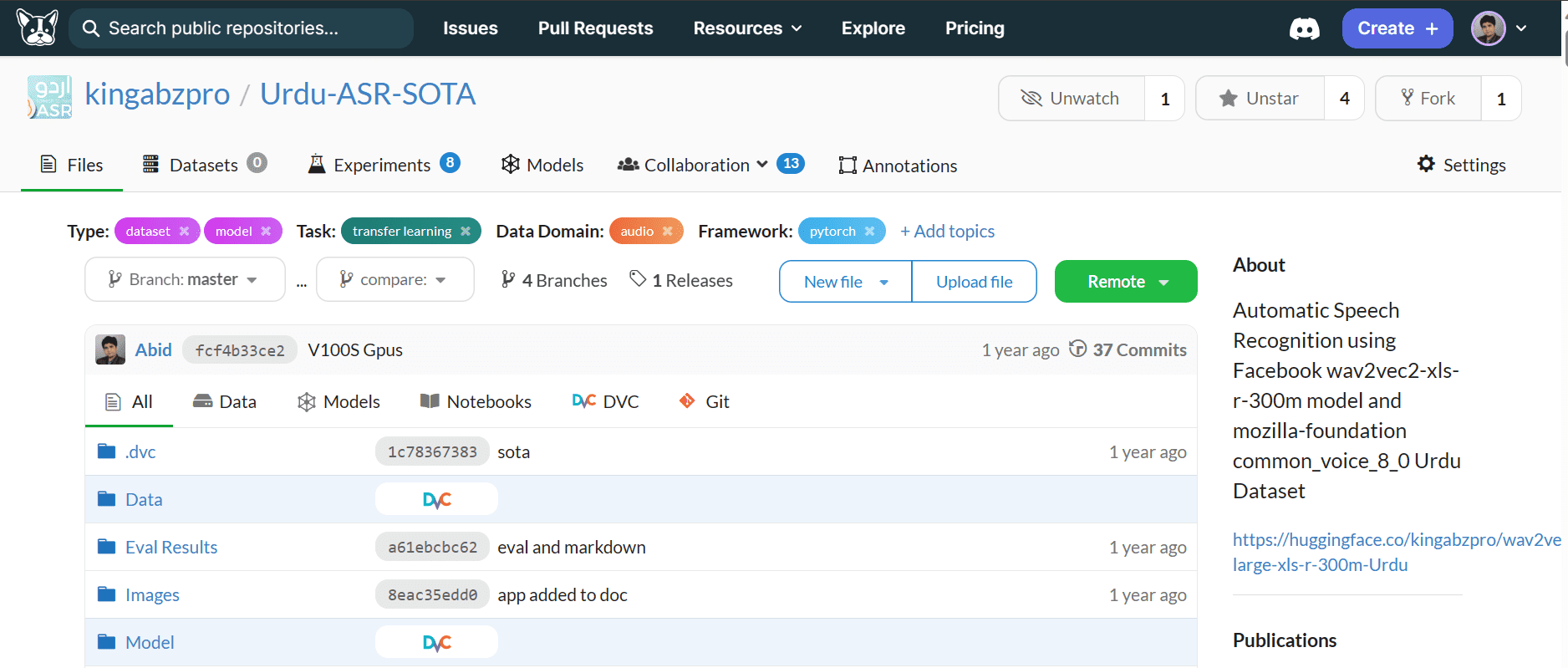
Picture from DagsHub
I’m an enormous fan of DagsHub attributable to its user-friendly method in importing and accessing information and fashions. DagsHub supplies each a easy API and a GUI that means that you can add and entry information and fashions with ease. Furthermore, it gives MLFlow cases for experiment monitoring and mannequin registry. Moreover, it supplies a free occasion of Label Studio to label your information. It is an all-in-one platform for all of your machine studying necessities. DagsHub additionally gives third-party integrations reminiscent of S3 bucket, New Relic, Jenkins, and Azure blob storage.
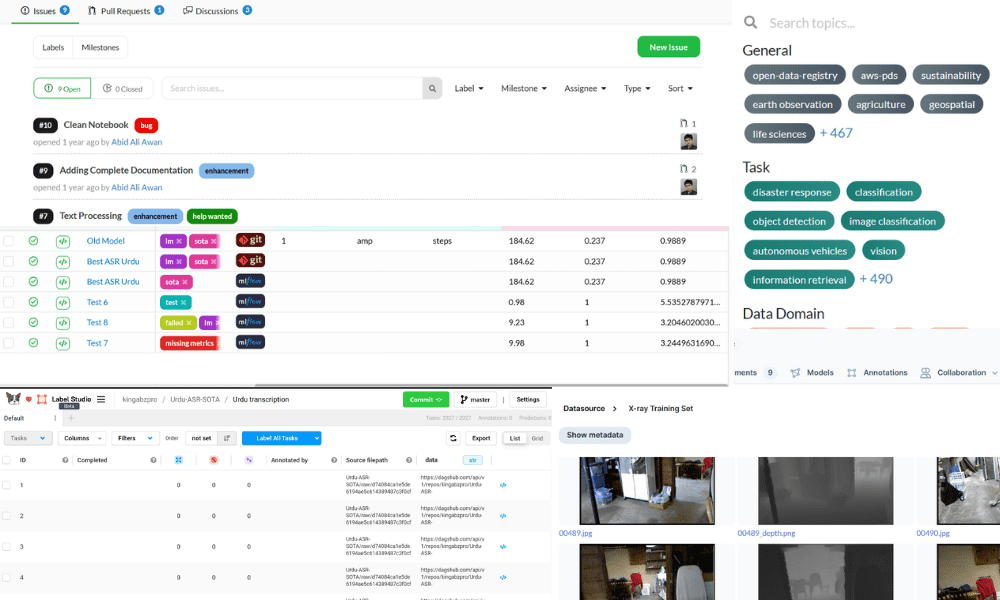
Picture from DagsHub
GitLab is an efficient different to GitHub for every kind of tech professionals. It gives strong model management and collaboration, CI/CD, Undertaking Administration and Subject Monitoring, Safety and Compliance, Analytics and Insights, Webhooks and REST API, Pages, and extra.
This platform is a perfect answer for builders and information scientists who must construct seamless workflow automation, from information assortment to mannequin deployment. It additionally gives highly effective problem monitoring and challenge administration instruments, that are important for coordinating complicated information science tasks.
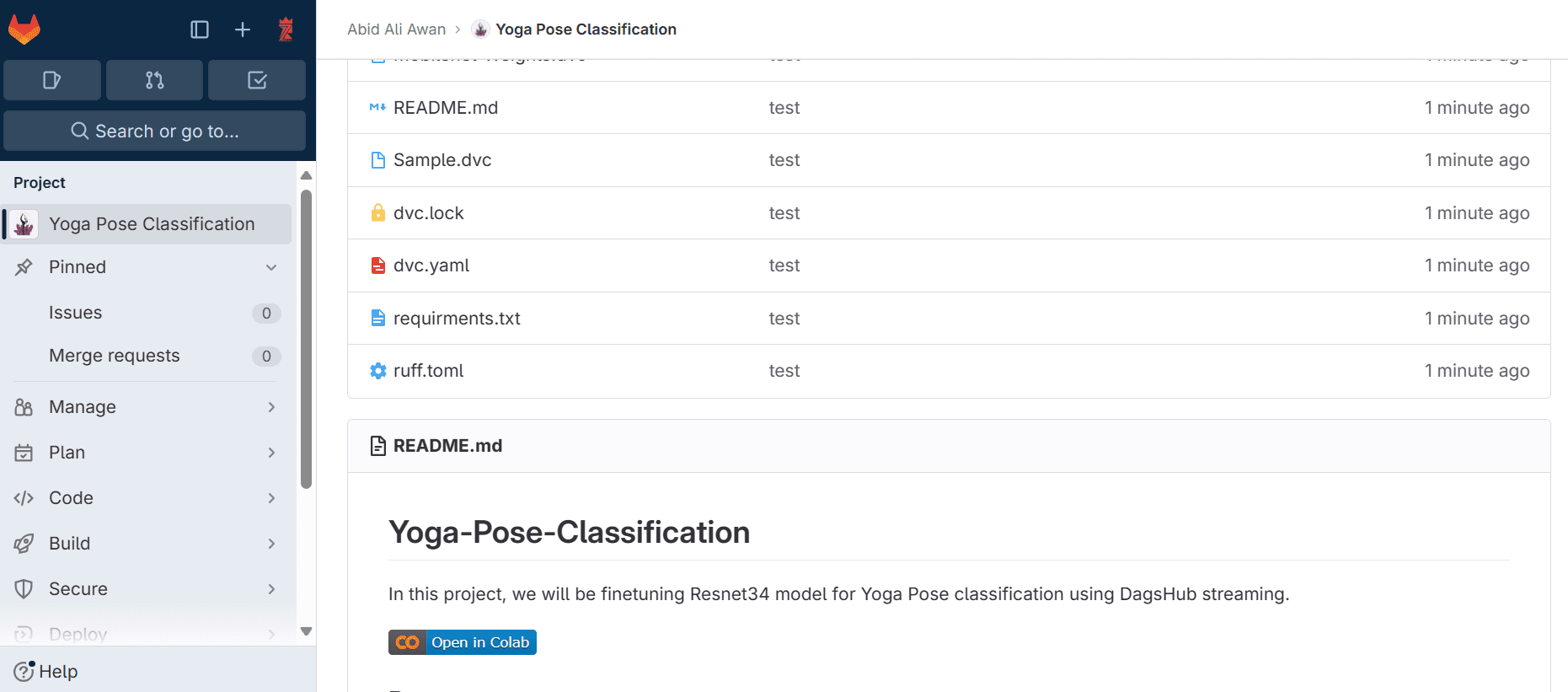
Picture from GitLab
I’ve been utilizing GitLab for the previous three years, primarily to familiarize myself with the platform and emigrate my static web sites from GitHub to GitLab. GitLab’s consumer interface is simple to grasp and it gives a variety of instruments at no cost customers. Furthermore, you will have the choice to host your individual GitLab Community Edition instance at no cost, providing you with full management over your tasks.
Similar to GitHub, GitLab will also be used as a portfolio on your information science tasks. You may add and share your whole work in a single place, and it even has higher collaboration instruments for bigger and extra complicated tasks. GitLab is a strong platform that you need to positively think about, even for those who’re already happy with GitHub.
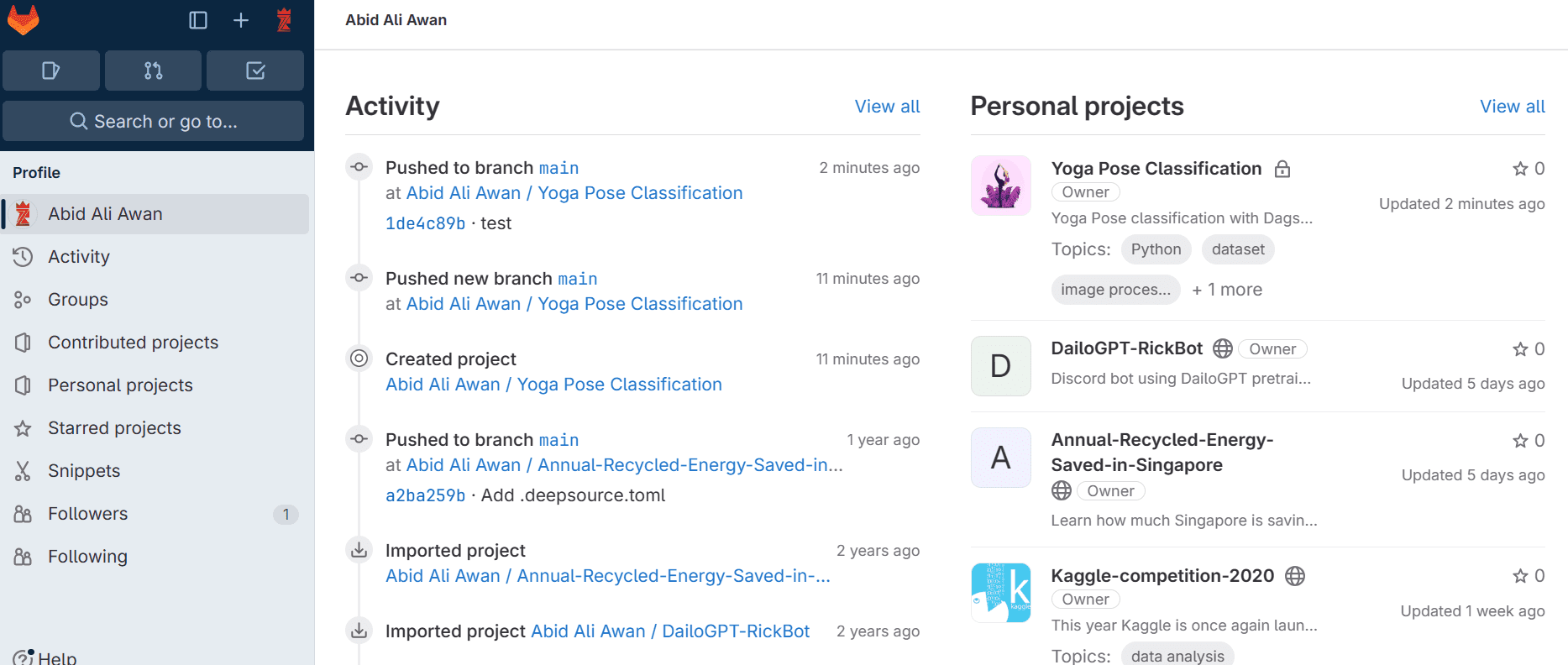
Picture from GitLab
Codeberg.org units itself aside as a non-profit, community-driven platform that places a robust emphasis on open supply and privateness. It gives a easy, user-friendly interface that appeals to these on the lookout for an uncomplicated and easy code internet hosting answer. For information scientists who prioritize open-source values and information privateness, Codeberg presents a horny different.
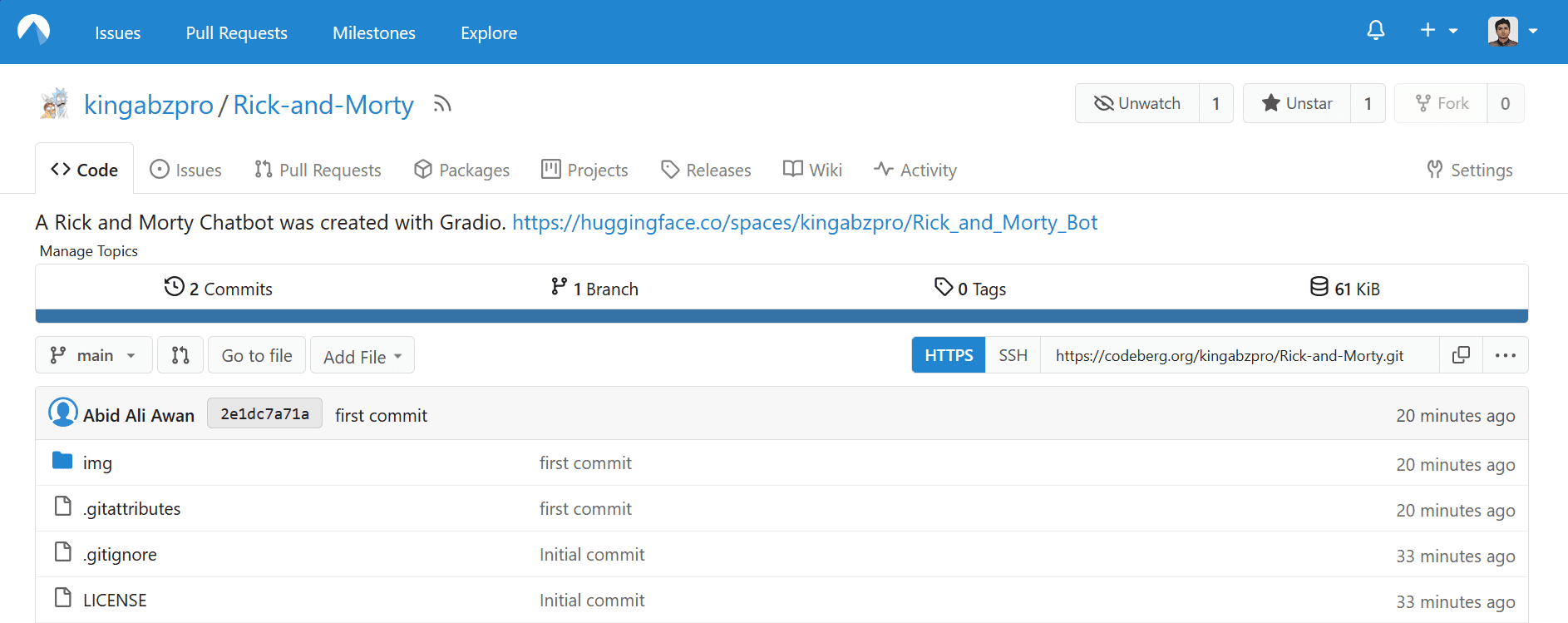
Picture from Codeberg
It gives CI/CD options, Pages, SSH and GPG, webhooks, third-party integrations, and collaboration instruments for tasks of all sorts, just like GitHub.
Whereas putting in Librewolf, I found Codeberg and Forgejo. They supply a GitHub-like expertise with Git and simplified workflow automation. I extremely suggest giving them a strive for internet hosting your tasks.
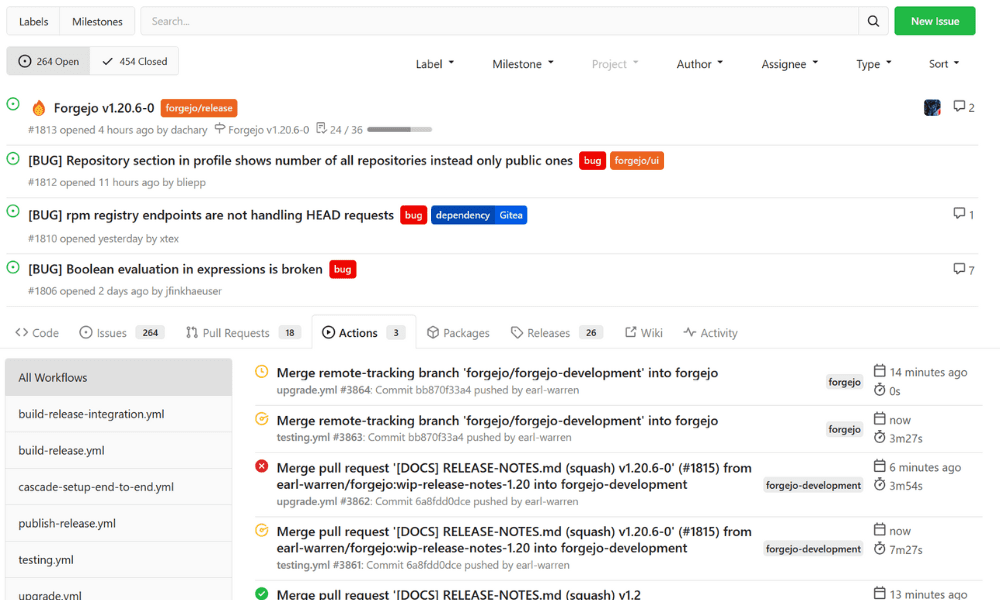
Picture from Codeberg
Every of those platforms gives distinctive options and benefits for information scientists. GitLab excels in built-in workflow administration, DagsHub and Hugging Face is tailor-made for machine studying challenge internet hosting and collaboration, Kaggle supplies an interactive setting for studying and competitors, and Codeberg emphasizes open supply and privateness. Relying on their particular wants, whether or not it is superior challenge administration, group engagement, specialised instruments, or a dedication to open-source rules, information scientists can discover a appropriate different to GitHub amongst these choices.
Abid Ali Awan (@1abidaliawan) is an authorized information scientist skilled who loves constructing machine studying fashions. Presently, he’s specializing in content material creation and writing technical blogs on machine studying and information science applied sciences. Abid holds a Grasp’s diploma in Know-how Administration and a bachelor’s diploma in Telecommunication Engineering. His imaginative and prescient is to construct an AI product utilizing a graph neural community for college students battling psychological sickness.
[ad_2]
Source link



